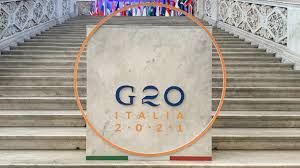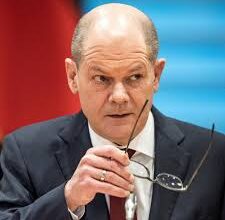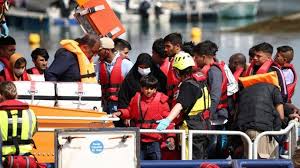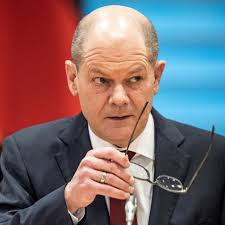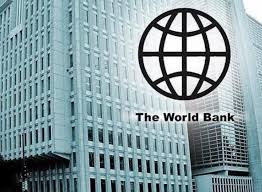Russia’s and China’s leaders will not be present. On the eve of the conference, Turkey came dangerously close to causing a diplomatic issue. For the first time since Washington yanked the rug out from under Paris’ $66 billion submarine agreement in Australia, the US, Australia, and France will sit at the same table.
This weekend’s Group of 20 meeting in Rome – the first in-person gathering of leaders of the world’s largest economies since the COVID-19 pandemic began – is not going to be business as usual. This is especially true given that the gathering will be followed by a larger United Nations climate change meeting in Glasgow, Scotland.
The two-day G-20 conference is functioning as a Roman holiday prelude to the 12-day Glasgow summit, with the climate issue taking center stage at the new Nuvola (Cloud) convention center in the Fascist-era EUR quarter of the Italian city.
Some of the presidents and prime ministers who took part met in July at a COVID-focused Group of Seven meetings, and others passed each other in the United Nations halls during the General Assembly in New York last month. After nearly two years of virus-induced lockdowns, this will be the first time the leaders of countries that account for 75% of global trade and 60% of the world’s population will meet as a group.
While economic recovery is a priority, host Italy hopes that the leaders would agree on a shared mid-century target for reaching net-zero greenhouse gas emissions, as well as examine a commitment to cut methane emissions.
The United Nations and climate campaigners also want the G-20 countries to follow through on their long-standing commitment to providing $100 billion in annual climate aid to impoverished countries to help them cope with the effects of global warming.
“Members of the G-20 are responsible for more than 80% of world emissions.” “There is a responsibility when they come together as a group to think about the promise of $100 billion in annual climate financing that has not been realized,” said Renata Dwan, deputy director of Chatham House, international affairs think center.
But what can be accomplished if China’s leader, the world’s leading carbon polluter and second-largest economy, fails to show up in Rome?
President Xi Jinping, who hasn’t left China since early 2020, and Russian President Vladimir Putin are both likely to participate remotely. Due to a weekend national election, neither Mexican President Andrés Manuel López Obrador nor Japanese Prime Minister Fumio Kishida has confirmed their attendance.
According to Massimo Franco, an international affairs journalist for the Italian daily newspaper Corriere Della Sera, the absence of Xi and Putin sends a signal that Europe should pay attention to.
“If China does not come to Rome, if Russia, which has a lot of energy to sell to Europe, does not join the G-20, I believe this G-20 will be proof of European energy fragility,” Franco added.
The sale of nuclear-powered submarines to Australia by the United States and the United Kingdom was announced last month, highlighting Europe’s geopolitical vulnerability. The agreement derailed a $66 billion deal for France to sell Australia diesel-powered submarines, prompting the French government to withdraw its ambassadors to the United States and Australia.
Since the squabble, US President Joe Biden and French President Emmanuel Macron have spoken on the phone twice and are scheduled to meet secretly in Rome. According to the presidential Elysee Palace, Macron wants to win US support for “the construction of a stronger European defense, complementary to NATO and contributing to global security.”
Macron has not talked with Australian Prime Minister Scott Morrison since the failed submarine deal, and it is unclear whether the two will meet in Rome.
The deal between the United States, the United Kingdom, and Australia, according to Carlo Altomonte, a professor of European economics at Milan’s Bocconi University, was clear evidence of shifting strategic priorities and attention to the Indo-Pacific region to counter China’s increased assertiveness, in this case at the expense of Washington’s traditional European allies.
“This in a way forces the European Union to determine, autonomously, a number of local geopolitical concerns” at the G-20 level and beyond, Altomonte said, adding that Washington has long been the heavyweight partner.
When Turkey threatened last week to expel the ambassadors of ten Western countries over their support for a detained activist, it was in a position to cast a cloud over the planned meeting. Four of the threatened envoys were from the G-20 member countries of Germany, France, Canada, and the United States.
Argentina, Australia, Brazil, China, India, Indonesia, Italy, Japan, South Korea, Mexico, Russia, Saudi Arabia, South Africa, the UK, and the European Union are also members of the G-20. Spain has a permanent guest seat at the table.
Mario Draghi, the Italian premier who helped save the euro with his now-famous resolve to do “whatever it takes,” will have his hands full trying to lead the gathering in the right direction ahead of Glasgow while negotiating a new era for European multilateralism.
“I don’t think he’ll say ‘whatever it takes,’ but I think he’ll try to highlight the strategic elements for Europe and how Europe can help in this crisis,” daily columnist Franco said.


